Dental Bridge And Implant: What Is Better ?
Dental Bridge and Implant are among the most popular dental restorations today, they provide effective solutions for cases of tooth loss. So, what are Dental Bridge and Implant? What are the advantages and disadvantages of each? What factors should be considered? Let’s explore these questions in this blog to help you make an informed decision about which option is right for you.
What are the Dental Bridge and Implant?
Dental Bridge
Dental Bridge is used to fill the gap created by one or more missing teeth, consisting of crowns anchored to the teeth on either side of the gap (called abutment teeth) connected to one or more false teeth in between. The false teeth are referred to as pontic and can be made from gold, alloys, porcelain, or a combination of these materials. There are four main types of Dental Bridge: traditional bridges, cantilever bridges, Maryland bridges, and implant-supported bridges, each designed and crafted to meet the specific needs and circumstances of each patient.
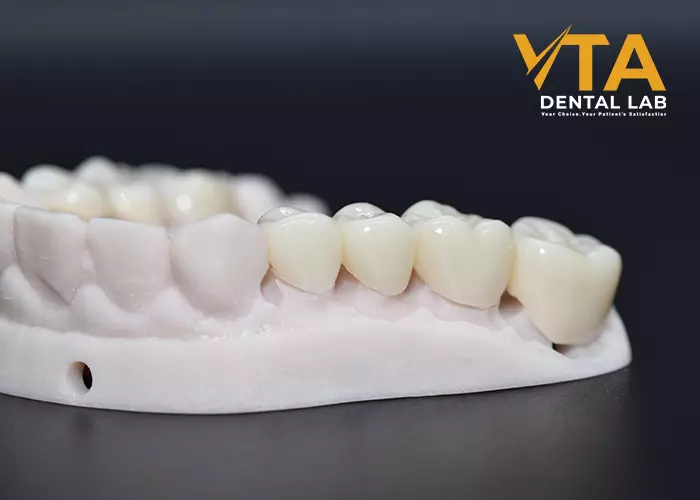
Dental Bridge
Dental Implant
Dental Implant (also known as an endosseous implant or fixture) is a prosthesis that interfaces with the bone of the jaw or skull to support a dental prosthesis such as a crown, bridge, denture, or facial prosthesis or to act as an orthodontic anchor. The basis for modern Dental Implant is a biological process called osseointegration, in which materials such as titanium or zirconia form an intimate bond to the bone. The implant fixture is first placed so that it is likely to osseointegrate, and then a dental prosthetic is added after the bone healing period. (source)
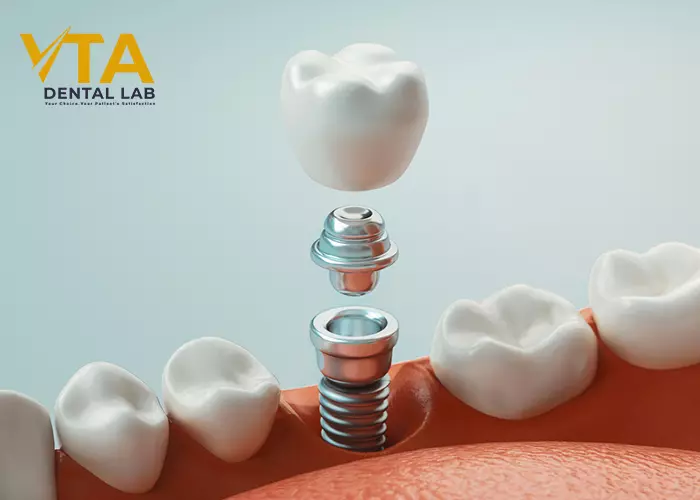
Dental Implant
Compare Pros and Cons Of Dental Bridge with Implant
Pros and cons of Dental Bridge
Pros of Dental Bridge
- Quicker Process: The procedure for placing a Dental Bridge is generally faster than that for Dental Implant. Implants require a healing period after the implant post is placed into the jawbone, which can take several months, followed by another procedure to place the crown. Bridges, on the other hand, can often be completed in just a couple of visits.
- No surgery or bone grafting required: Dental Bridge are a non-surgical solution and do not require jawbone support, thus eliminating issues related to pain, infection, or complications during and after surgery or bone grafting.
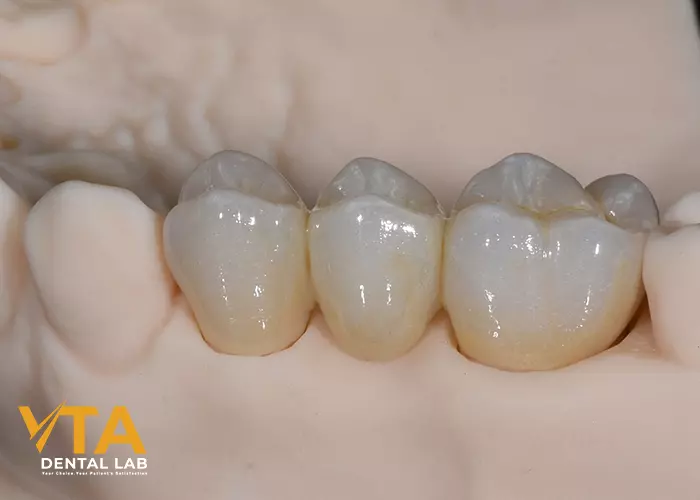
Pros of Dental Bridge
- Low cost: In many cases, dental bridges are less expensive upfront than Dental Implant. While the long-term costs might differ (bridges might need replacement after a certain number of years), the initial investment is often lower for bridges.
- Suitable for certain medical conditions: Patients with certain medical conditions or inadequate bone quality may not be ideal candidates for implants due to potential complications or slower healing processes. In such cases, a Dental Bridge may be a more appropriate option.
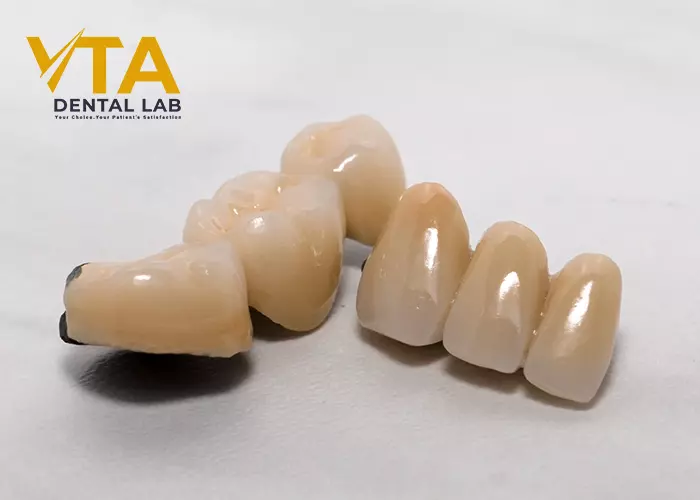
Pros of Dental Bridge
Cons of Dental Bridge
- Impact on adjacent teeth: To place a traditional dental bridge, the adjacent teeth on both sides of the gap must be reduced in size. This can weaken these teeth and make them more susceptible to cavities and further damage in the future.
- Jawbone resorption: Over time, the site of the lost tooth no longer receives stimulation, leading to jawbone resorption. This can result in several long-term negative consequences, such as facial collapse or asymmetry, and instability of dentures.
- Shorter Lifespan: Dental Bridge generally have a shorter lifespan than implants, averaging about 5-15 years, whereas implants, with proper care, can last a lifetime.
- Difficulties in cleaning and adjustment: Cleaning a Dental Bridge can be more challenging, increasing the risk of cavities or gum disease in the supporting teeth. Additionally, if the bridge needs adjustment or replacement, the process can be more complex compared to Implants.
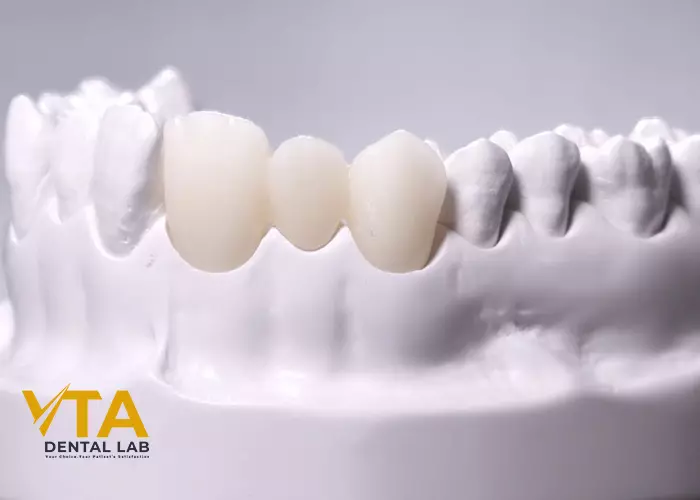
Cons of Dental Bridge
Pros and cons of Dental Implant
Pros of Dental Implant
- Durability: With proper care and maintenance, Dental Implant can last a lifetime, making them a more permanent solution compared to Dental Bridge, which may need replacement after a certain number of years.
- Preservation of Bone Structure: Implant-supported grafts help stimulate the jawbone, preventing bone loss in the area of the missing tooth and averting long-term consequences such as facial collapse or asymmetry and unstable teeth.
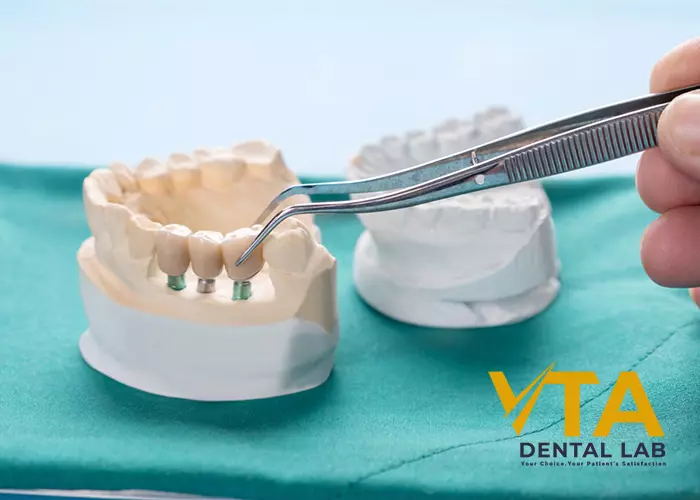
Pros of Dental Implant
- No Impact on Adjacent Teeth: Dental Implant stand alone and does not rely on neighboring teeth for support. In contrast, Dental Bridge require the adjacent teeth to be filed down to accommodate the bridge, potentially compromising their structural integrity.
- Natural Look and Feel: Dental Implants are designed to mimic the root structure of natural teeth, providing a foundation for replacement teeth that look, feel, and function like your natural teeth.
- Improved Oral Hygiene: Since Dental Implant function like natural teeth, they do not face the same hygiene challenges as bridges. This makes it easier to maintain good oral hygiene, reducing the risk of cavities and gum disease.
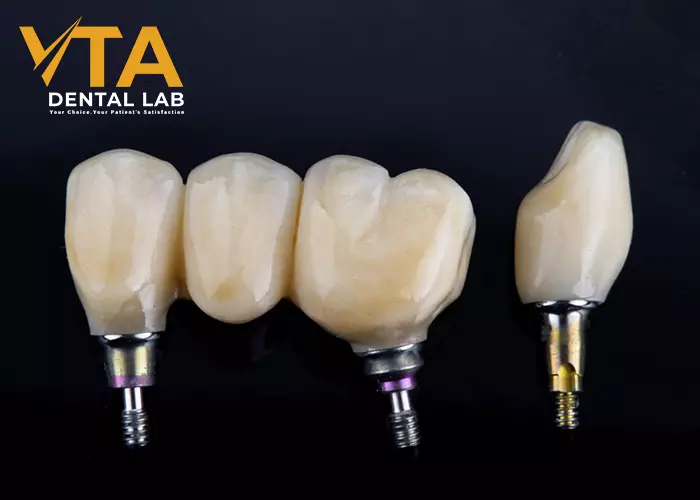
Pros of Dental Implant
Cons of Dental Implant
- Higher Initial Cost: Although Dental Implant may be more cost-effective in the long run due to their durability, the initial investment is something to consider. They are typically more expensive than bridges due to the need for multiple procedures and specialized materials during the implant placement.
- Longer Treatment Time: Dental Implant process often takes longer, including the waiting time for healing and integration with the bone, which can take anywhere from a few months to a year. In contrast, a dental bridge can usually be completed in just a few appointments.
- Surgical Procedure Required and Potential for Complications: Dental Implant involves placing the titanium post into the jawbone. This can be a deterrent for some individuals, especially those who are apprehensive about surgeries. and As with any surgical procedure, there’s a risk of complications such as infection, nerve damage, or sinus problems (if the implant is placed in the upper jaw)
- Not Suitable for Everyone: Some patients may not qualify for implants due to issues with jawbone density, health conditions, or other factors related to age.
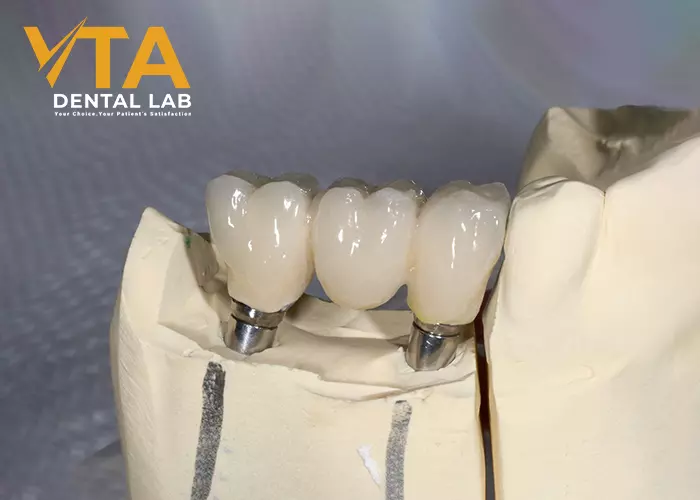
Cons of Dental Implant
Choosing Between Dental Bridge And Implant
Dental Bridge and Implant both emerge as top contenders in the search for appropriate dental restoration for each patient, with each type offering its advantages and challenges. While Dental Bridge provides a quicker, non-surgical solution that may be more cost-effective initially, Implant promises longevity, a natural feel, and preservation of jawbone health.
It is impossible to determine which method is best, as the decision between the two is not a one-size-fits-all answer but rather a deeply personal choice influenced by individual needs, oral health, financial considerations, and lifestyle preferences. Your dentist can provide the necessary information and guidance to help you make a decision that aligns with your specific needs and circumstances, ensuring you choose the most suitable solution for your goals and achieve a bright, confident smile for years to come.
On this journey, VTA Dental Lab is more than willing to accompany both dentists and patients to provide suitable solutions, whether it be Dental Bridge and Implant, or any other restorative dental methods you may require. Please visit our website for more information: https://vtadentallab.com/